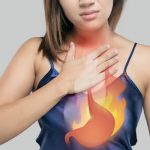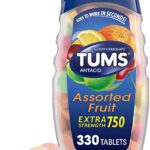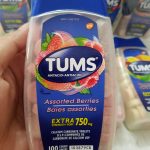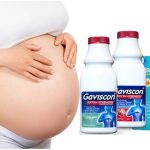Does Tums Help With Acid Reflux?
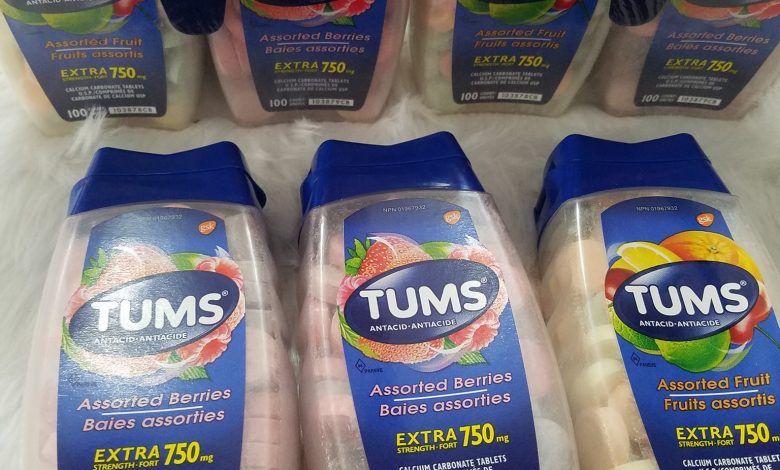
Acid reflux is a common condition that features a burning pain, known as heartburn, in the lower chest area. It happens when stomach acid flows back up into the food pipe.
Gastroesophageal reflux disease (GERD) is diagnosed when acid reflux occurs more than twice a week. Exact figures vary, but diseases resulting from acid reflux are the most common gut complaint seen by hospital departments in the United States. According to the American College of Gastroenterology, about 60 million Americans experience heartburn at least once a month, and at least 15 million as often as daily. GERD is most common in Western countries, affecting an estimated 20 to 30 percent of the population. Chronic heartburn can lead to serious complications.
What is Tums?
Tums is an antacid made of sucrose (sugar) and calcium carbonate (CaCO3) manufactured by GlaxoSmithKline in St. Louis, Missouri, US. They are also available in a sugar-free version. It is an over-the-counter drug, available at many retail stores, including drug stores, grocery stores, and mass merchandisers. It provides relief from heartburn and indigestion (“sour stomach”).
Does Tums Help With Acid Reflux?
Antacids like Tums are very effective in relieving and or stopping symptoms of Acid reflux and Gastroesophageal reflux disease (GERD) including heartburn, chest pain, regurgitation of food into the mouth, and difficulty swallowing.
Tums help to neutralize the stomach acid and can provide quick relief, but they don’t heal the esophagus if the lining is damaged. Antacids like Tums are typically safe for most people. However, people with certain medical conditions should talk with their doctors before taking certain antacids that contain aluminum hydroxide and magnesium carbonate.
For example, people with heart failure may have sodium restrictions to help decrease fluid buildup. However, antacids often contain a lot of sodium. These people should ask their doctor before using antacids.
People with kidney failure may develop a buildup of aluminum after using antacids. This can lead to aluminum toxicity. People with kidney failure also tend to have problems with electrolyte balance. All antacids contain electrolytes, which could make electrolyte balance problems worse.
Talk to your doctor if you are pregnant or before giving your child antacids. Children don’t typically develop symptoms of excess stomach acid, so their symptoms could be related to another condition.
Other alternatives to Tums for acid reflux
If you’ve been having repeated episodes of heartburn—or any other symptoms of acid reflux—you might try the following instead of Tums:
Eat sparingly and slowly: When the stomach is very full, there can be more reflux into the esophagus. If it fits into your schedule, you may want to try what is sometimes called “grazing”—eating small meals more frequently rather than three large meals daily.
Avoid certain foods: People with acid reflux were once instructed to eliminate all but the blandest foods from their diets. But that’s no longer the case. We’ve evolved from the days when you couldn’t eat anything. But there are still some foods that are more likely than others to trigger reflux, including mint, fatty foods, spicy foods, tomatoes, onions, garlic, coffee, tea, chocolate, and alcohol. If you eat any of these foods regularly, you might try eliminating them to see if doing so controls your reflux, and then try adding them back one by one. The Foodicine Health website at www.foodicinehealth.org has diet tips for people with acid reflux and GERD as well as for other gastrointestinal disorders.
Don’t drink carbonated beverages: They make you burp, which sends acid into the esophagus. Drink flat water instead of sparkling water.
Stay up after eating: When you’re standing, or even sitting, gravity alone helps keep acid in the stomach, where it belongs. Finish eating three hours before you go to bed. This means no naps after lunch, and no late suppers or midnight snacks.
Don’t move too fast: Avoid vigorous exercise for a couple of hours after eating. An after-dinner stroll is fine, but a more strenuous workout, especially if it involves bending over, can send acid into your esophagus.
Sleep on an incline: Ideally, your head should be 6 to 8 inches higher than your feet. You can achieve this by using “extra-tall” bed risers on the legs supporting the head of your bed. If your sleeping partner objects to this change, try using a foam wedge support for your upper body. Don’t try to create a wedge by stacking pillows. They won’t provide the uniform support you need.
Lose weight if it’s advised: Increased weight spreads the muscular structure that supports the lower esophageal sphincter, decreasing the pressure that holds the sphincter closed. This leads to reflux and heartburn.
If you smoke, quit: Nicotine may relax the lower esophageal sphincter.
Check your medications: Some—including postmenopausal estrogen, tricyclic antidepressants, and anti-inflammatory painkillers—can relax the sphincter, while others—particularly bisphosphonates like alendronate (Fosamax), ibandronate (Boniva), or risedronate (Actonel), which are taken to increase bone density—can irritate the esophagus.
If these steps aren’t effective or if you have severe pain or difficulty swallowing, see your doctor to rule out other causes. You may also need medication to control reflux even as you pursue lifestyle changes.

